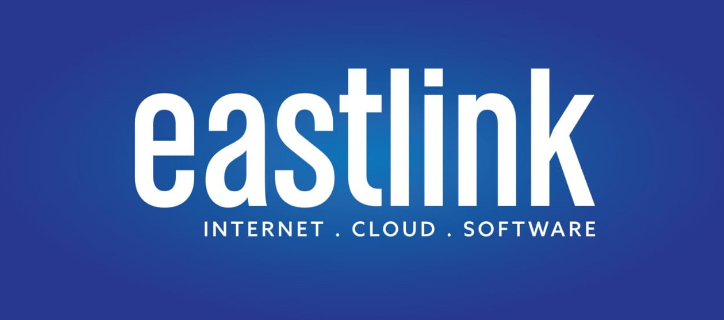Web hosting is one of the critical aspects of building a successful website, especially a business website. When starting out with a new or basic website, most site owners opt for the affordable Shared Hosting or for the customizable yet cost-efficient VPS Hosting. However, as your site traffic goes up exponentially, you need a hosting platform that offers high performance, advanced security and dedicated privacy. This is where Dedicated Hosting comes into the picture.
If you have a website with heavy volumes of traffic, heavy media elements and high resource requirements, you need a Dedicated Server. A Dedicated Server is a robust, highly customizable, isolated and secure hosting environment. Due to its dedicated nature, this hosting platform offers a feature called root access.
What is Dedicated Server Hosting?
Dedicated Server Hosting is a type of hosting where a server and all its resources are entirely dedicated to powering a single website. It’s the most powerful form of web hosting as well as the most expensive.
Dedicated Hosting offers unparalleled performance in handling websites with high as well as dynamic traffic. It is extremely reliable, and offers near-unlimited scope to secure a website. But most importantly, due to your website being the only one on the server, it offers complete access to the server. This access in Linux Dedicated Hosting is known as the full root access to the server.
What is root access?
‘Root’, in any Linux based computer, refers to the default username assigned to the system administrator. When you log in using ‘root’ as the username, the computer (including servers) assumes that you own the system and gives you all privileges.
Having root access in web hosting denotes having access to your hosting server. With root access in Linux Dedicated Hosting you can access any file on the server, modify any file or configurations in a way that you may deem fit, install and delete server-wide applications of your choice, gain control over all the ports, and much more.
Suffice to say that root access allows you to do whatever you want on a Linux server. If you have access to the password of the root username, you have root ‘access’.
How to make the most of root access in Linux Dedicated Server Hosting?
Enable brute force protection
A web server is open to the entire internet, meaning if anyone has the right credentials, they can log in to your server. This leads to a variety of brute force attacks on servers across the globe. A brute force attack is a cyber-attack where hackers simply try password after password till they stumble on the correct password.
To prevent such attacks from being successful, you can enable something called cPHulk Brute Force Protection that cPanel offers out of the box. However, you need root access to do it.
Essentially, when you enable and deploy cPHulk Brute Force Protection, the PAM (Pluggable Authentication Module) will restrict the number of failed attempts at logging in. Once the number’s up, so to say, your web server will simply block that IP address, rendering that device useless to hack. You can set the number of attempts and the duration for which the device is blocked.
Disable all forms of hotlinking
Let’s say you’ve put up a beautiful image on your website, and someone wants to use that image. The correct way to go about this is to take your consent, download the said image, and then re-upload it on their website. A lot of people simply don’t bother to do this.
People can simply copy the URL of the image and paste it on their website. The problem is that the image still has a URL that’s linked to your web server, meaning that every time that image is accessed by anyone across the globe, your web server will have to load that image. This is known as hotlinking.
This might not seem like a problem for an image or two, but over a period of time, it can seriously hamper the performance of your server, consuming resources constantly and for purposes that do your website no good. Hotlinking is bandwidth theft. When you have Linux Dedicated Hosting with root access, you can disable all forms of hotlinking and protect your bandwidth usage.
Regulate root access
The primary advantage as well as disadvantage of having root access is that you get complete authority over the server. Confused? It is definitely an advantage if you’re a system admin or the owner, and knowing what you are doing. However, this access can very realistically spell tragedy if not used correctly. You can easily delete business files, hosting related files, and all sorts of data without even knowing that you’ve done it.
The best way to prevent this is to ensure that root access is given to only those people who need it, i.e., the system admins and the website owner. No one else needs to have root access.
Use third-party software wherever needed
One of the most important advantages of root access is that you can install any third-party application without having to get ‘permission’ from the website hosting company. Take full advantage of this.
There are a variety of cloud-based security tools that can help protect your website. Use a good website protection tool such as SiteLock Website Security that’s designed for small businesses and provides comprehensive security. Additionally, you can use automated data backup tools like CodeGuard that scan your website daily and take backups automatically, without any human intervention.
There are also numerous tools that can help you increase your workflow efficiency. Use these tools to make your business more efficient and secure.
Change the default JavaScript delivery method
Whenever a user accesses your website, your web server will send over information. After receiving the information, the user’s browser loads that information to display your website. One of the files that are sent over is called the JavaScript file.
In default settings, the browser does not load any information until it finishes reading the JavaScript file. This, of course, means that your potential customers have to wait longer for your website to load.
With root access, you can change the settings so that the browser first loads the website and then reads the JavaScript file in the background. This doesn’t change the speed of your website, technically, but your websites will load faster.
Conclusion
Dedicated Server Hosting is a powerful hosting method. However, not all Dedicated Server Hosting plans are the same.
However, make sure you are comfortable handling the root access yourself or have a server expert in your team. If not, you can opt for Managed Dedicated Hosting for fully managed support. With these fundamentals of hosting covered, you can concentrate on growing your website further without having to worry about the speed, or reliability, or security of your hosting.
Thus, root access with Dedicated Hosting is a great feature to help you make the most of the features offered by the most robust hosting platform. However, as mentioned above, make sure to look at the overall quality, reliability and security of the Dedicated Hosting platform before buying one.












